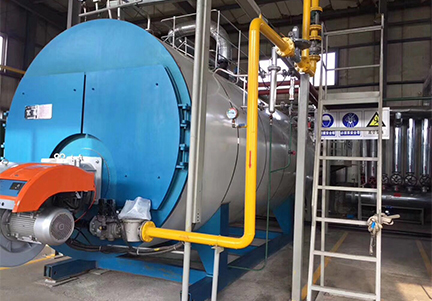wholesale industrial boiler price
Understanding Wholesale Industrial Boiler Prices
Industrial boilers play a critical role in various sectors, including manufacturing, food processing, and energy generation. They are essential for providing steam and hot water, which are crucial for many industrial processes. As businesses look to meet increasing demands and enhance operational efficiency, understanding the wholesale prices of industrial boilers becomes vital. In this article, we will explore the factors influencing these prices, the types of industrial boilers available, and tips for businesses looking to make a purchase.
Factors Influencing Wholesale Prices
1. Type of Boiler The type of boiler significantly impacts pricing. Industrial boilers come in various types, including fire-tube, water-tube, electric, and biomass boilers. Fire-tube boilers, which are the most common, tend to be more affordable. In contrast, water-tube boilers, designed for high-pressure applications, are generally more expensive due to their complex design and manufacturing process.
2. Size and Capacity The capacity of a boiler, usually measured in BTUs (British Thermal Units), affects its price. Larger boilers designed to handle higher capacities incur higher costs. Businesses must assess their specific needs carefully to avoid overspending on an oversized unit or facing operational challenges with an undersized one.
3. Fuel Type The cost of fuel plays an essential role in determining boiler prices. Boilers can run on various fuels, including natural gas, propane, coal, and biomass. Natural gas-fired boilers are often the most cost-effective in terms of operational costs, leading to a potential decrease in overall pricing for related units.
4. Technology and Efficiency Advances in technology have led to the development of highly efficient boilers, which, while initially more expensive, can save money in the long run through reduced fuel consumption. Buyers should consider the efficiency rating of a boiler and its long-term operational costs rather than focusing solely on the upfront price.
5. Manufacturer and Brand Reputation The brand and reputation of the manufacturer can significantly affect wholesale prices. Established companies with a history of reliability and quality may charge higher prices, but they often provide better warranties and customer support. Choosing a reputable manufacturer can reduce the risk of costly repairs and downtime in the future.
Types of Industrial Boilers
- Fire-Tube Boilers These are ideal for lower-pressure applications and are typically more economical. They consist of a series of tubes that are surrounded by water, with hot gases passing through the tubes, heating the water.
- Water-Tube Boilers Designed for high-pressure applications, these boilers circulate water in tubes that are heated by combustion gases. They are more efficient but also more expensive.
wholesale industrial boiler price

- Electric Boilers These units use electricity as the power source, making them an excellent option for areas with no access to natural gas. However, they may have higher operational costs depending on local electricity rates.
- Biomass Boilers Increasingly popular as a sustainable option, biomass boilers use organic materials for fuel. They can have variable pricing based on the type and availability of biomass fuel.
Tips for Purchasing Industrial Boilers
1. Assess Needs Thoroughly Businesses should conduct a detailed analysis of their steam and hot water needs, taking into account peak demand and the processes requiring thermal energy.
2. Consult Professionals Working with experienced engineers or consultants can provide insights into the most cost-effective and suitable boiler type for specific applications.
3. Consider Total Cost of Ownership Beyond the initial purchase price, businesses should evaluate annual operational costs, maintenance, and potential efficiency gains when selecting their boiler.
4. Explore Financing Options Many manufacturers offer financing solutions or leasing options that can help businesses manage their cash flow while acquiring the necessary equipment.
5. Compare Suppliers Finally, it’s important to compare prices and services from multiple suppliers to ensure you’re getting the best deal.
Conclusion
Understanding wholesale industrial boiler prices involves considering multiple factors, including type, size, fuel type, and manufacturer reputation. By carefully assessing their needs and exploring the options available, businesses can make informed purchasing decisions that meet their operational requirements and financial constraints. Investing time in this process can lead to significant long-term savings and process efficiencies in production.
-
Efficient Thermal Oil Boilers with AI Optimization | Superior PerformanceNewsAug.03,2025
-
High-Efficiency OEM Steam Boilers w/GPT-4-TurboNewsAug.02,2025
-
Advanced Electric Steam Boiler Manufacturers | GPT-4 Turbo AINewsAug.01,2025
-
Custom Steam Boilers Manufacturer | AI-Enhanced EfficiencyNewsJul.31,2025
-
Top Electric Steam Boiler Makers | AI-OptimizedNewsJul.31,2025
-
Top Electric Steam Boiler Manufacturers - High Efficiency SolutionsNewsJul.30,2025

